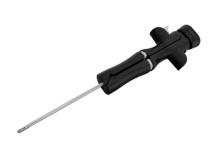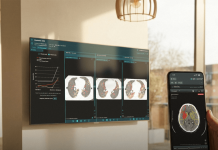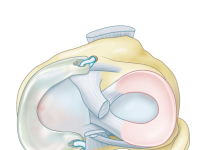The first patient in Ireland has been implanted with FIRE1’s system, which monitors an important warning sign of congestive heart failure.
Based in Ireland, FIRE1 implanted the first patient with its namesake system at University Hospital Galway as part of a first-in-human clinical trial named FUTURE-HF.
Related: Cortechs.ai launches OnQ Prostate advanced imaging solution in US
The sensor device, which is about the size of a pen lid, measures the amount of fluid in the body – a warning sign of congestive heart failure.
The device is implanted into the body’s largest vein – the vena cava – using a small catheter. It is inserted in collapsed form and expands to full size upon entering the vena cava. It works by continuously measuring the size of the vessel and sending data to a belt reader around the abdomen worn once a day. FIRE1 likens the technology to continuous glucose monitoring.
Individuals with heart failure struggle to pump blood around the body, which causes fluid to build up. Heart failure is estimated to affect 5.2 million people in the US, with average out-of-pocket expenses per patient reaching around $4,400.
The FUTURE-HF trial (NCT04203576) aims to test the feasibility and safety of the device in patients with heart failure who have become worse in the previous six months. FIRE1 aims to enrol a total of 50 patients across sites in the UK, Netherlands, and Ireland, among others.
The study’s primary safety endpoint is procedural success and freedom from FIRE1 sensor complications three months after implantation, whilst the technical endpoint is acquiring a signal from the sensor.
Professor Faisal Sharif, who performed the implant at University Hospital Galway, said the data transmitted from the device will give “a new window into heart failure management” and can “enable proactive changes in medications that will keep them healthy and at home”.
The FUTURE-HF trial is being conducted alongside the FUTURE-HF2 trial (NCT05763407) – an early feasibility in the US estimated to enrol 15 patients. The first patient in FUTURE-HF2 was implanted last July, and the company announced enrolment completion in February 2024.
FIRE1 closed a $25m funding round earlier this year, which included investment from Medtronic.




